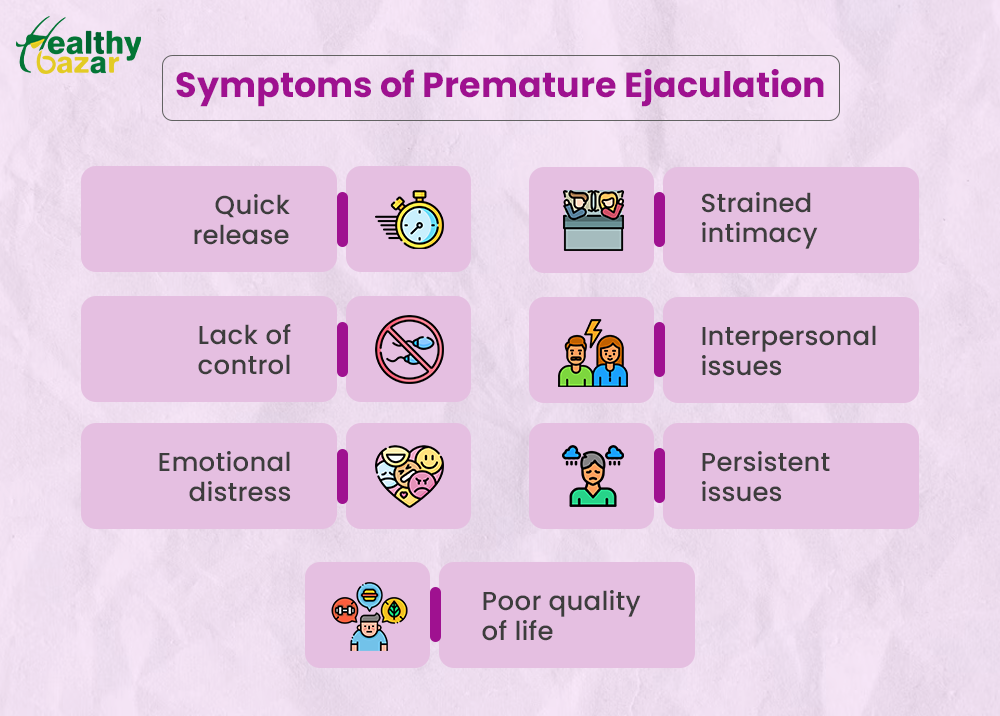
Premature ejaculation (PE) is a common sexual issue that affects many men at some point in their lives. It is defined as the inability to control ejaculation during sexual intercourse, often resulting in unsatisfactory experiences for both partners. Understanding the causes of premature ejaculation and exploring effective solutions can help individuals regain confidence and enhance their sexual health. In this blog, we will discuss the factors contributing to PE and various treatment options available.
What is Premature Ejaculation?
Premature ejaculation is characterized by the inability to delay ejaculation for as long as desired during sexual activity. It can lead to distress, anxiety, and strained relationships. While there is no universally accepted definition of what constitutes PE, it is generally recognized when ejaculation occurs within one minute of penetration. It is important to note that occasional instances of premature ejaculation are normal; however, persistent issues may warrant attention.
Causes of Premature Ejaculation
1. Psychological Factors
Psychological factors often play a significant role in premature ejaculation:
- Anxiety and Stress: Performance anxiety and stress related to sexual performance can contribute to a lack of control over ejaculation. Worrying about pleasing a partner or meeting expectations can heighten arousal and lead to premature ejaculation.
- Depression: Mental health conditions like depression can affect sexual function, including ejaculation control. Feelings of hopelessness and decreased libido may exacerbate the issue.
- Past Experiences: Traumatic or negative sexual experiences can lead to psychological barriers that contribute to PE.
2. Biological Factors
Several biological factors can influence premature ejaculation:
- Hormonal Imbalances: Abnormal levels of hormones, such as testosterone and serotonin, may affect ejaculation timing.
- Nerve Sensitivity: Some men may have heightened sensitivity of the nerves that control ejaculation, leading to premature responses.
- Medical Conditions: Certain medical conditions, such as prostatitis or hyperthyroidism, can contribute to issues with ejaculation control.
3. Relationship Issues
Relationship dynamics can also impact sexual performance:
- Communication Gaps: Lack of communication between partners regarding sexual desires and preferences can lead to anxiety and performance issues.
- Intimacy Levels: Low emotional intimacy or unresolved conflicts may hinder sexual satisfaction and contribute to premature ejaculation.
Effective Treatment Options for Premature Ejaculation
1. Behavioral Techniques
Several behavioral techniques can help manage premature ejaculation:
- Start-Stop Technique: This method involves stimulating the penis until the urge to ejaculate is strong, then stopping all stimulation for about 30 seconds. Repeating this process can help increase control over ejaculation.
- Squeeze Technique: This technique involves squeezing the base of the penis when the urge to ejaculate occurs. This pressure can help delay ejaculation and prolong intercourse.
2. Medical Treatments
If behavioral techniques are insufficient, several medical treatments may be recommended:
- Topical Anesthetics: Creams or sprays containing numbing agents can be applied to the penis before intercourse to reduce sensitivity and delay ejaculation.
- Medications: Certain oral medications, including selective serotonin reuptake inhibitors (SSRIs) and other antidepressants, can help increase ejaculatory control. It’s essential to consult a healthcare provider for appropriate prescriptions and dosage.
3. Communication with Partners
Open and honest communication with your partner is essential in addressing premature ejaculation:
- Discuss Concerns: Talking openly about sexual concerns and preferences can help alleviate anxiety and build intimacy. This understanding can lead to a more relaxed atmosphere during intimate moments.
- Explore Alternatives: Engaging in non-penetrative sexual activities, such as foreplay or mutual masturbation, can help reduce performance pressure while enhancing intimacy.
4. Seeking Professional Help
If premature ejaculation persists despite trying various techniques, it may be beneficial to consult a healthcare professional or a sex therapist. They can provide tailored advice and support based on individual needs and circumstances.
Conclusion
Premature ejaculation is a common issue that many men face, but it does not have to define their sexual experiences. By understanding the causes and exploring various solutions—such as behavioral techniques, medical treatments, and open communication with partners—individuals can regain control over their sexual health. Remember, seeking help is a positive step toward enhancing intimacy and improving sexual satisfaction for both partners. You are not alone, and effective treatments are available.

